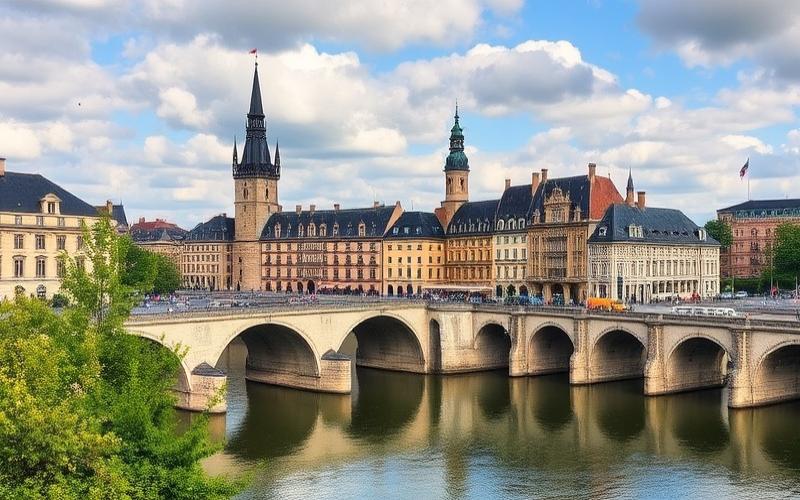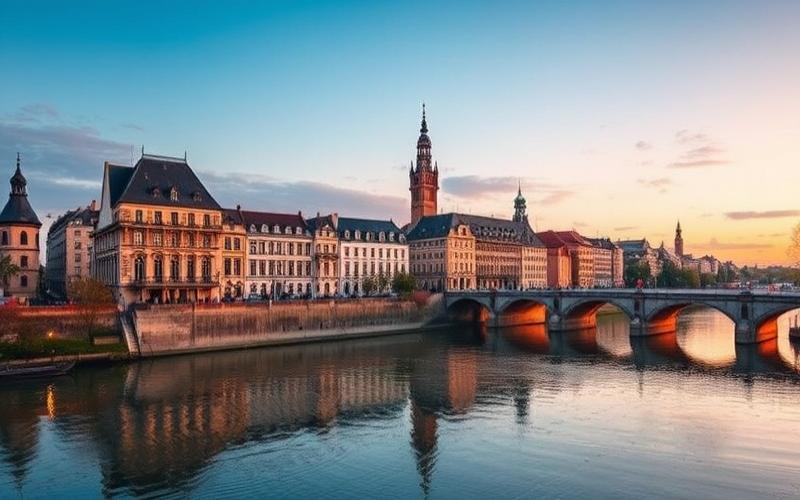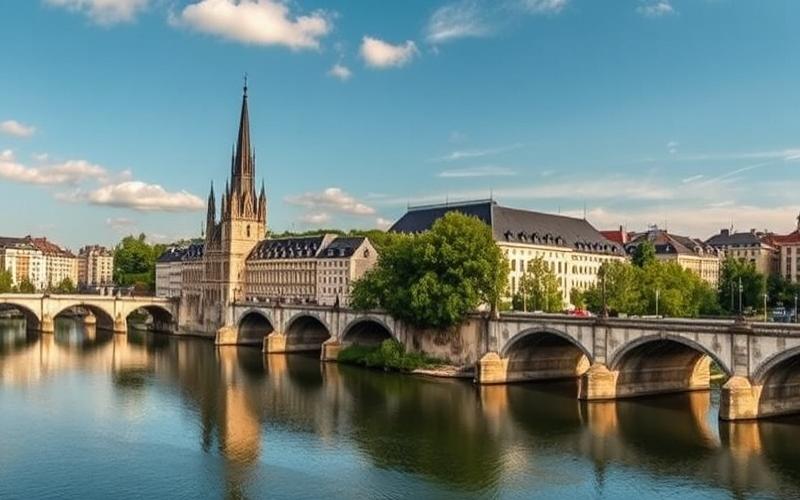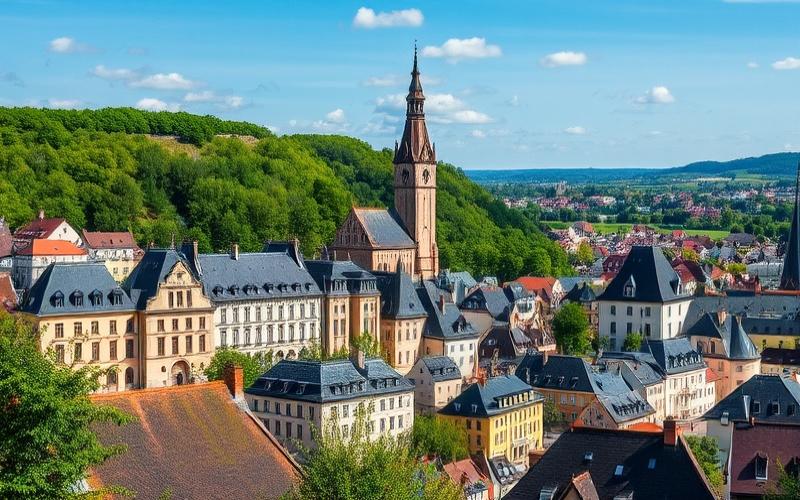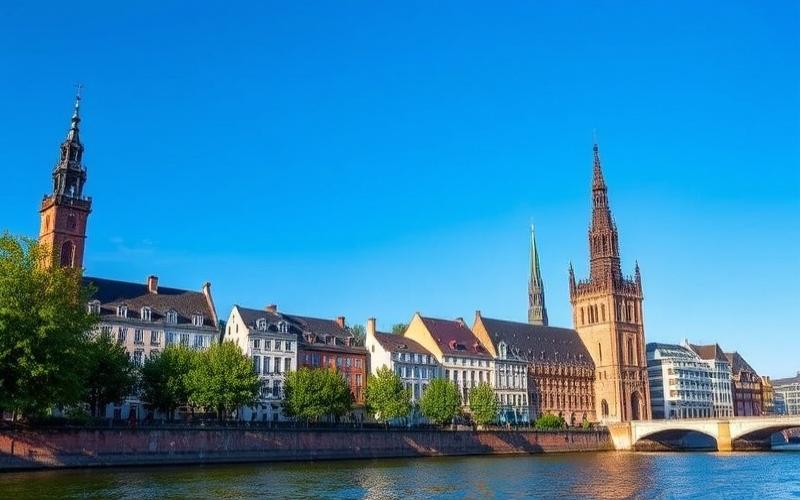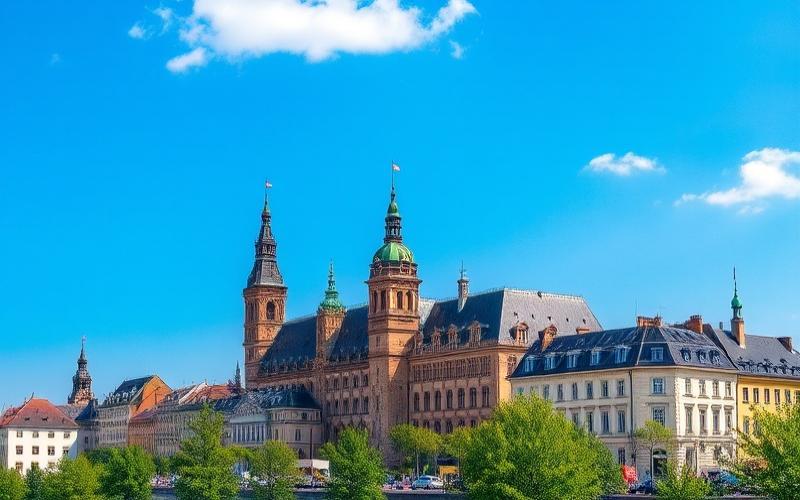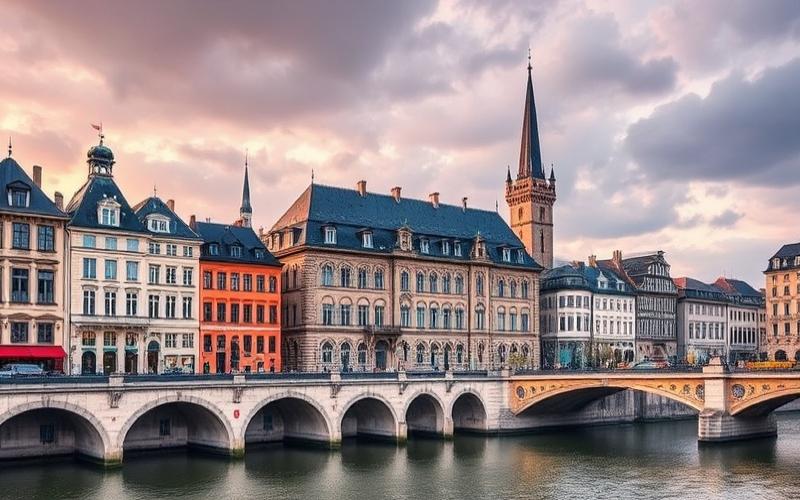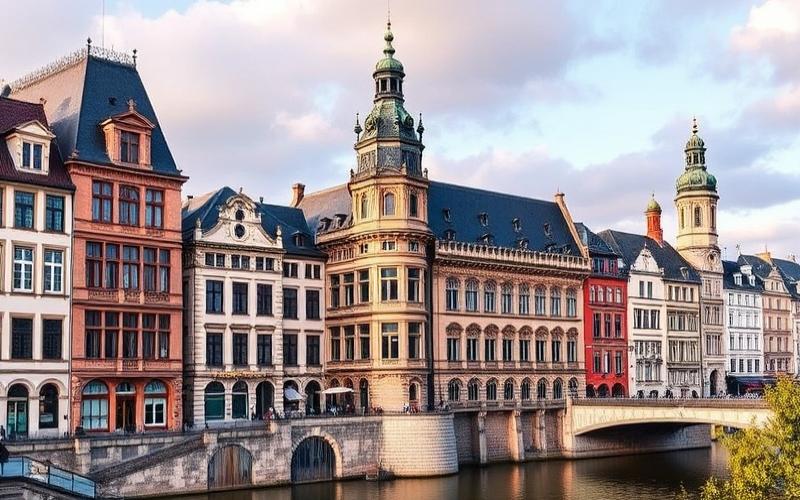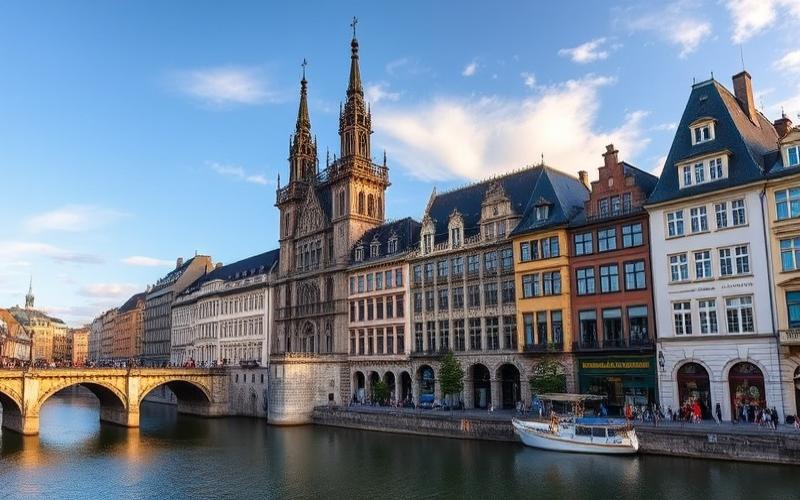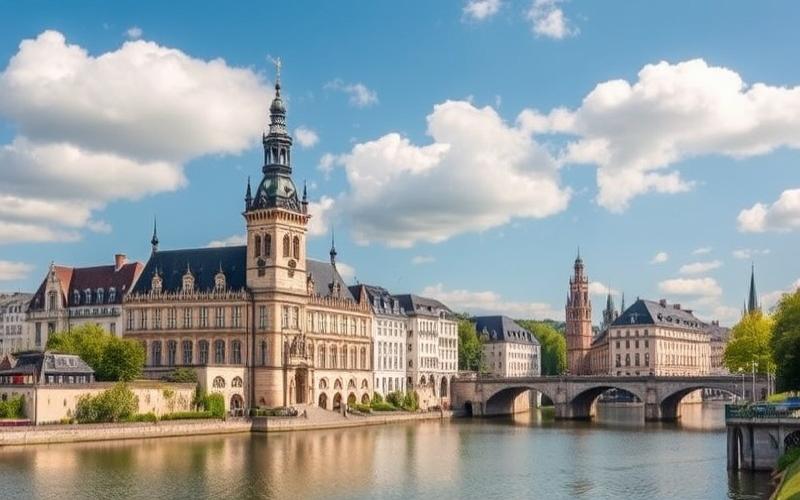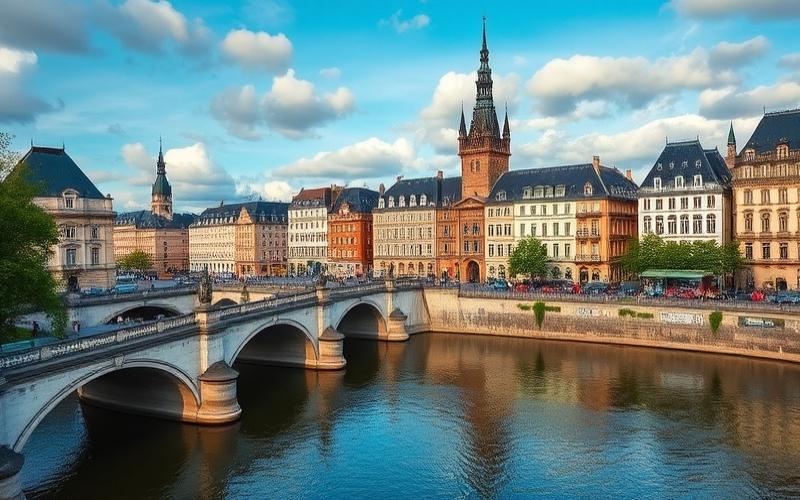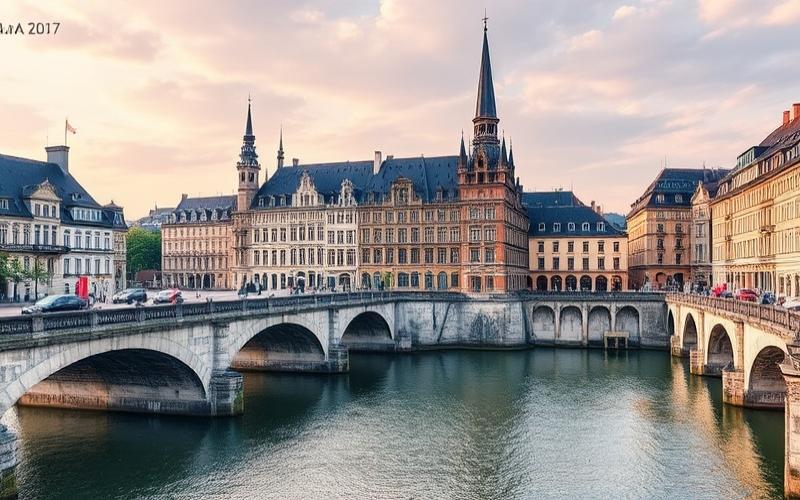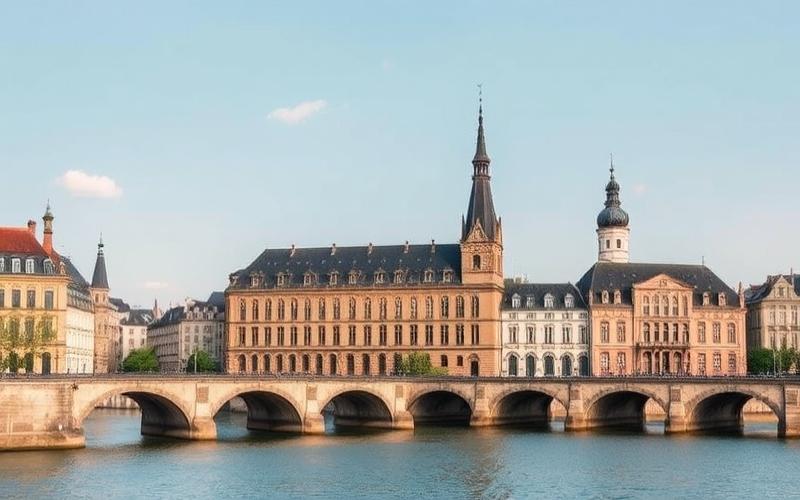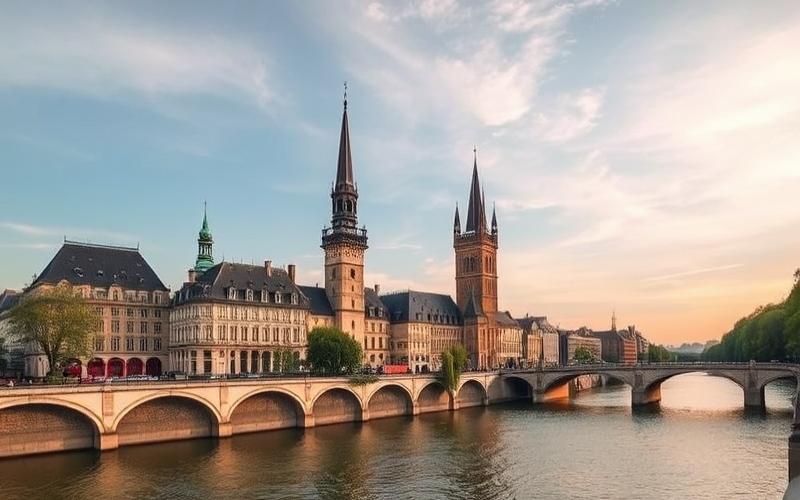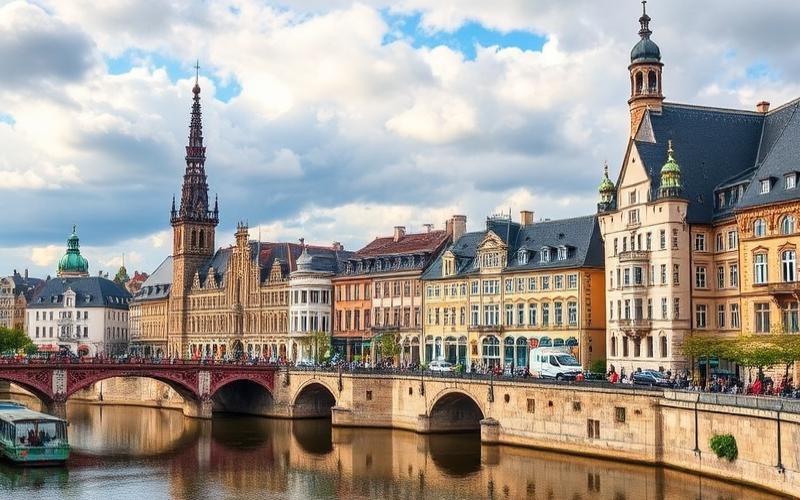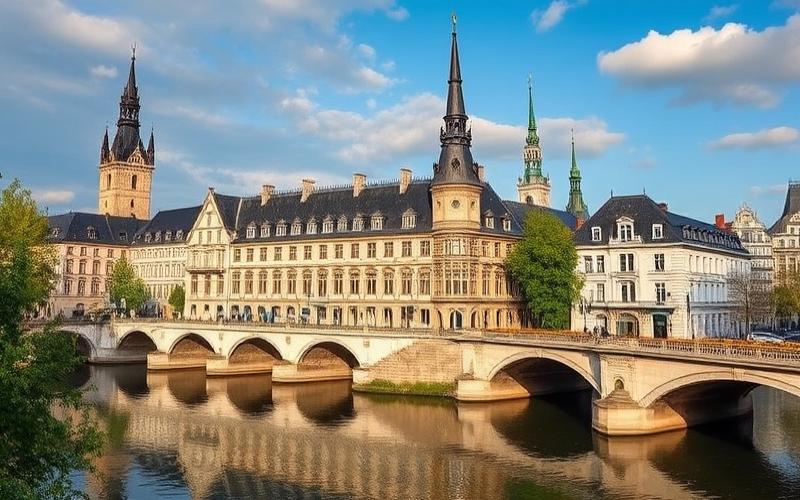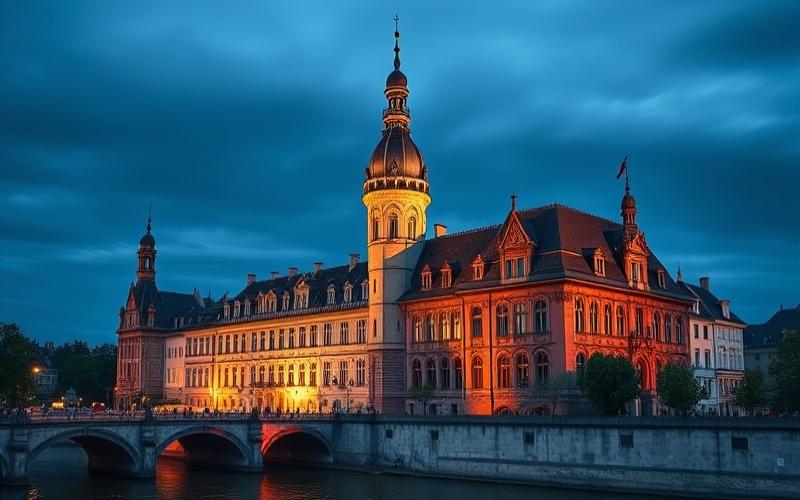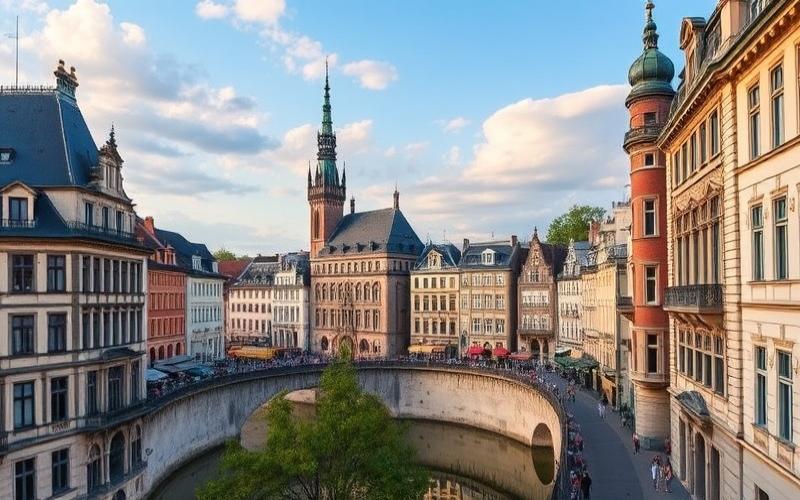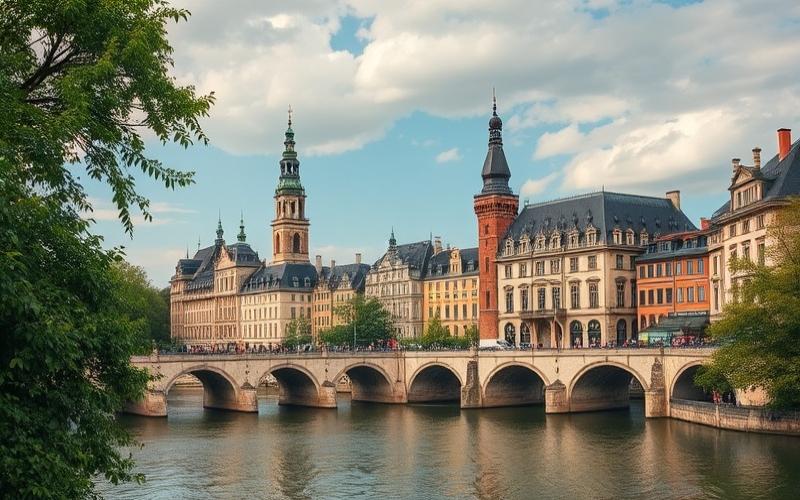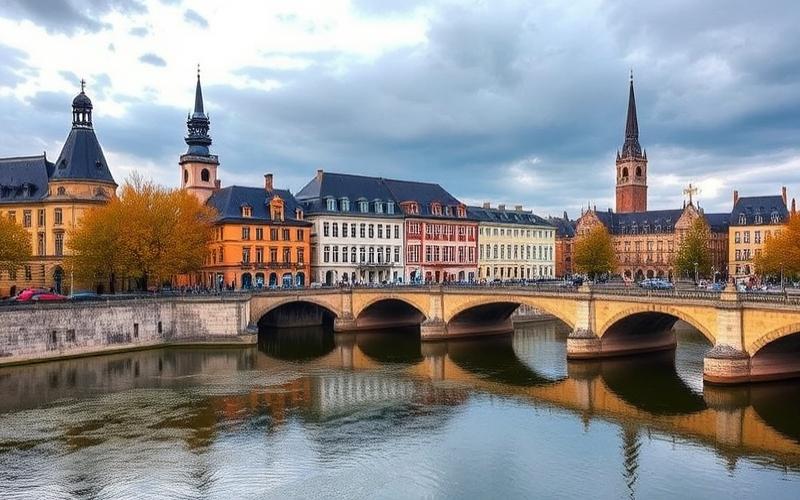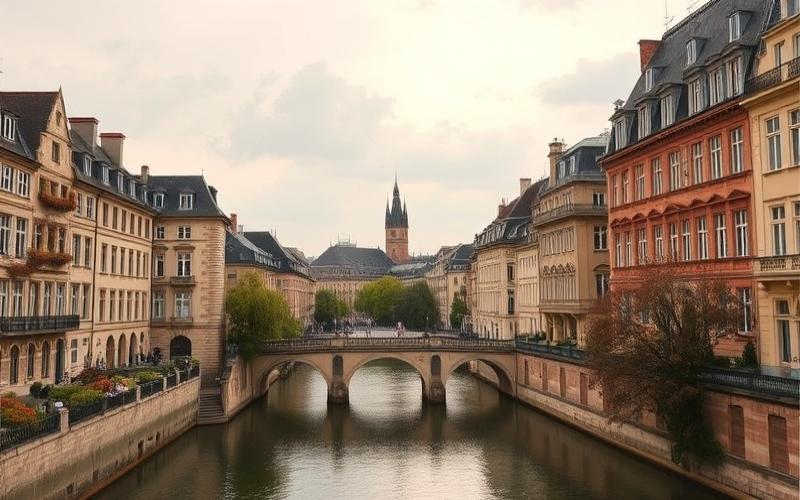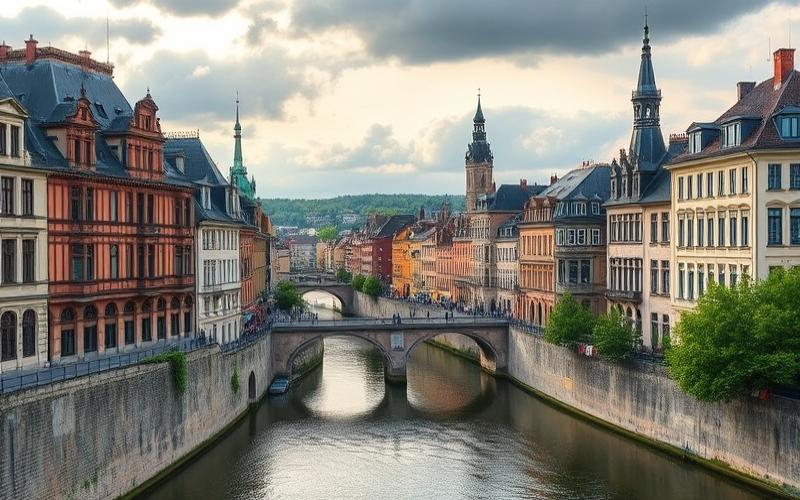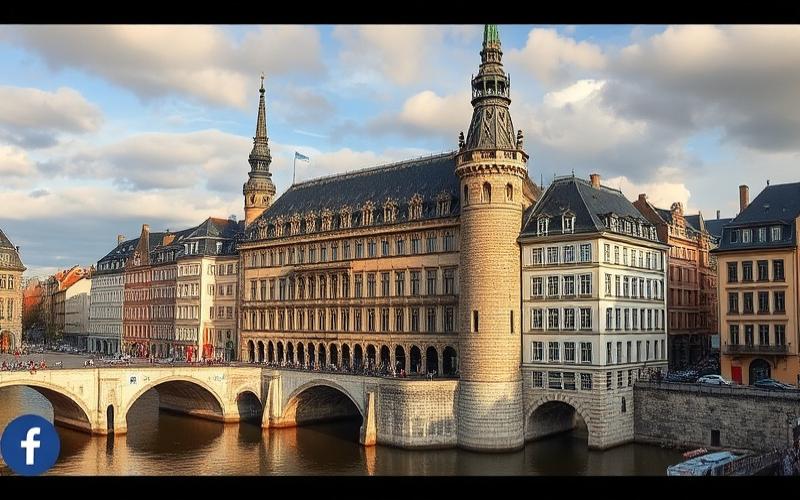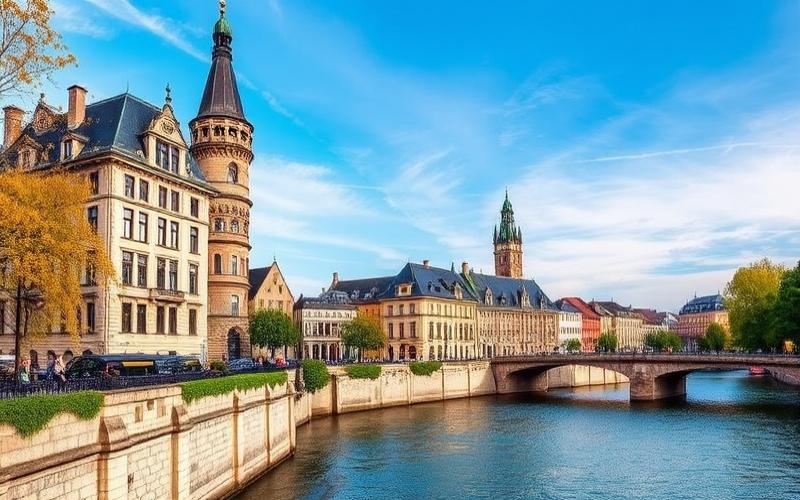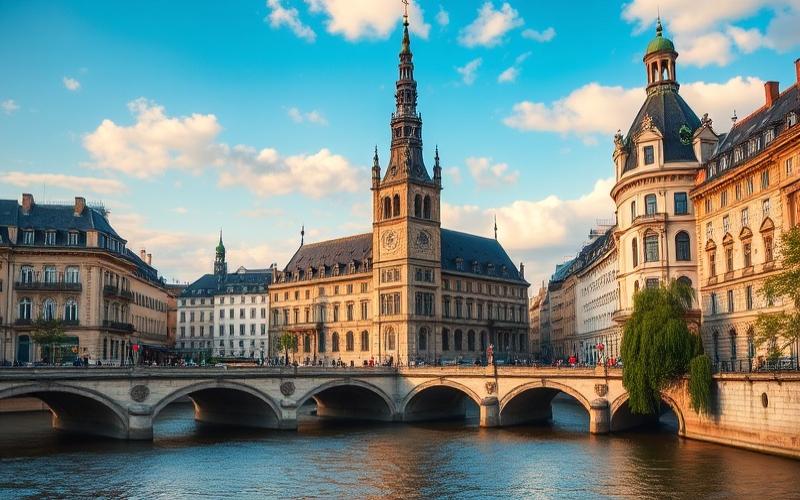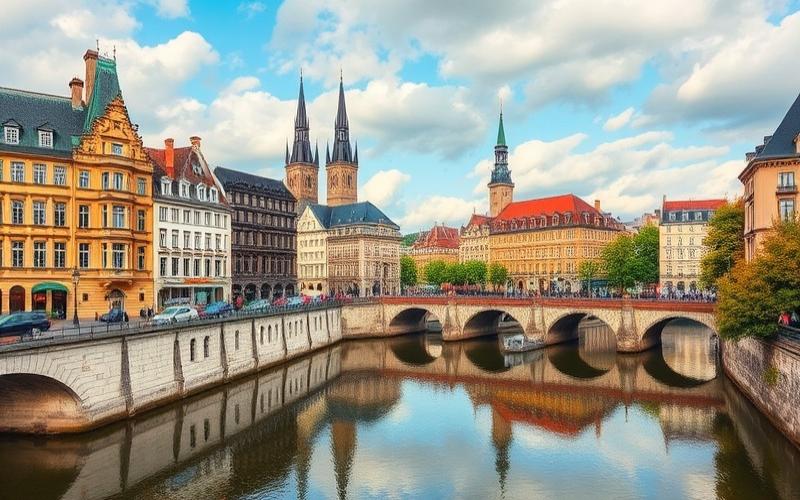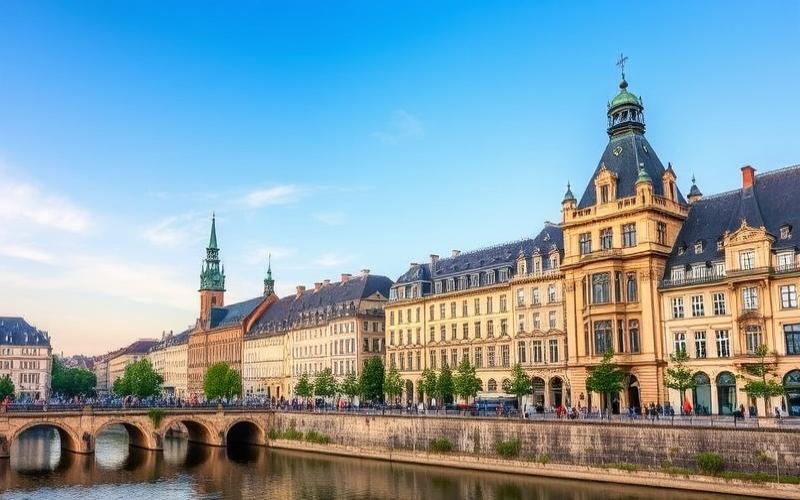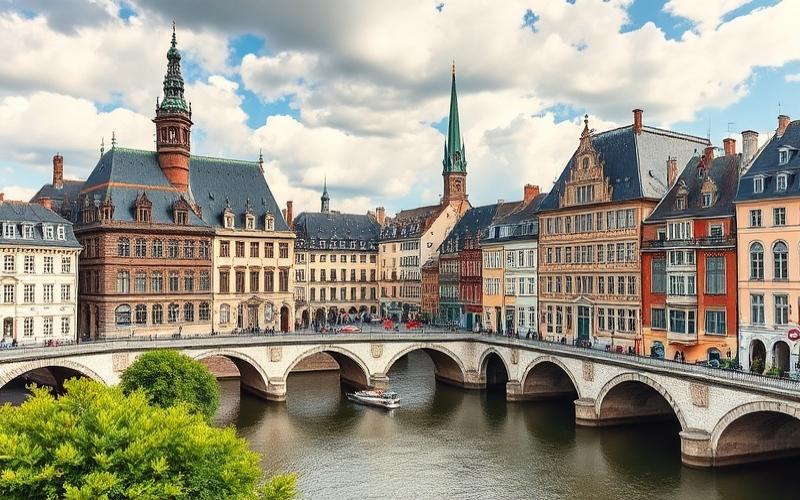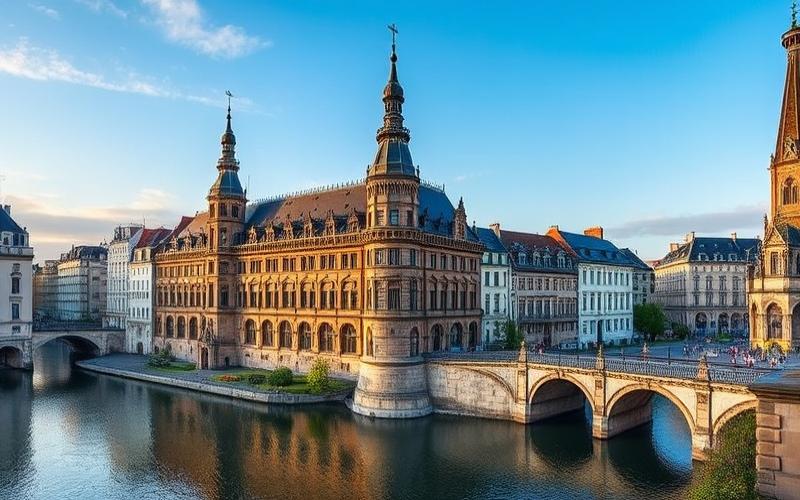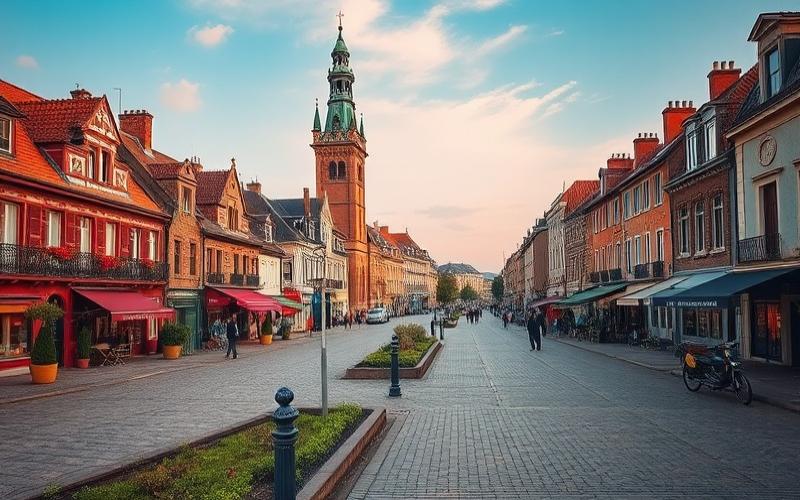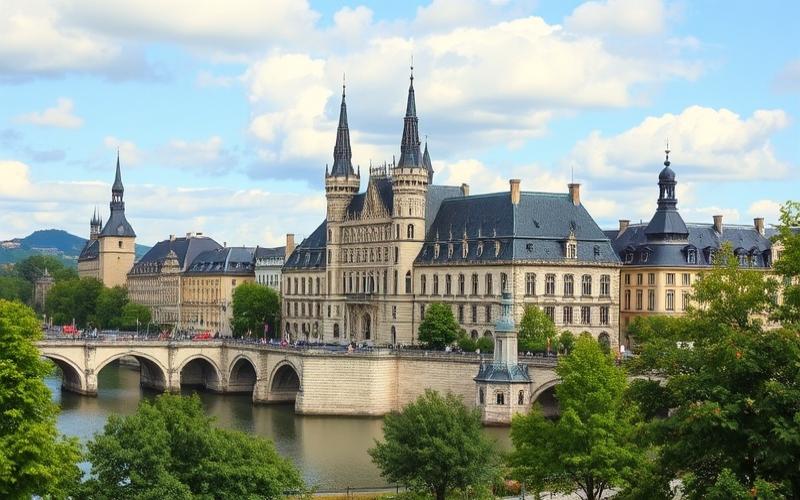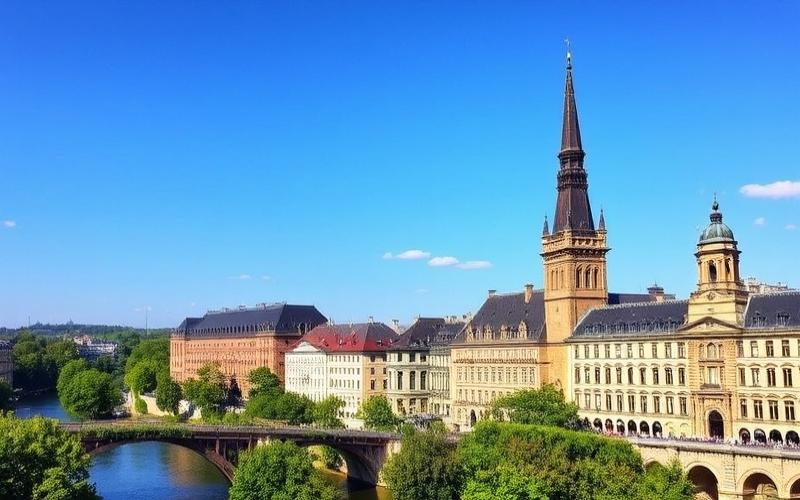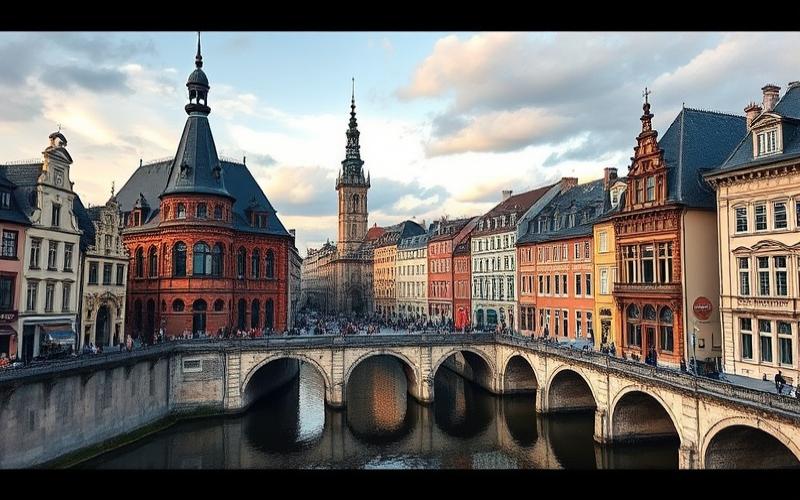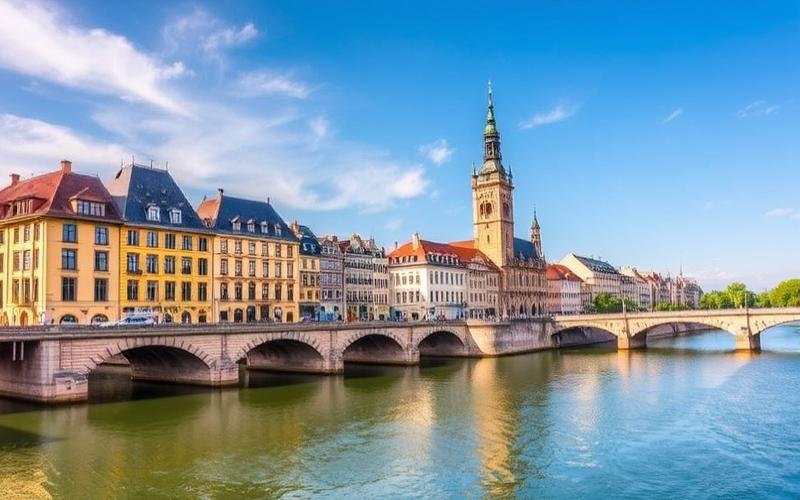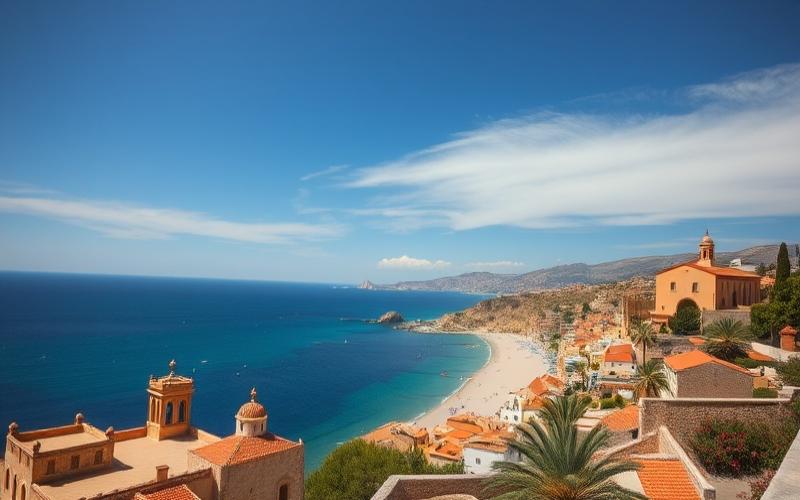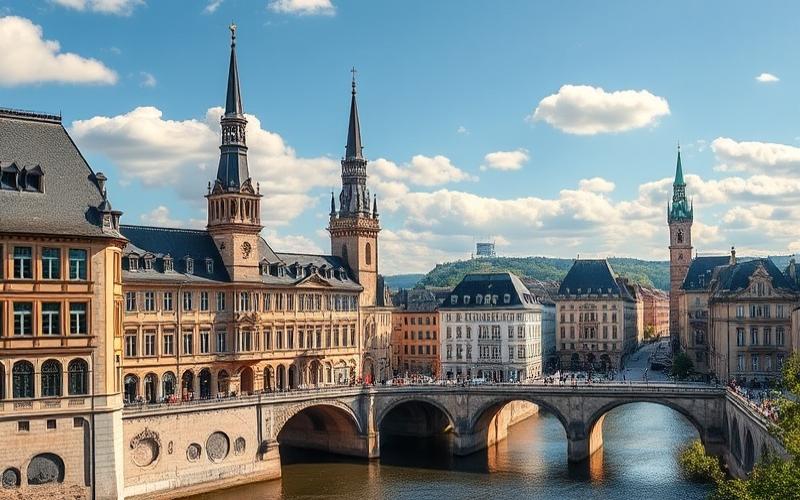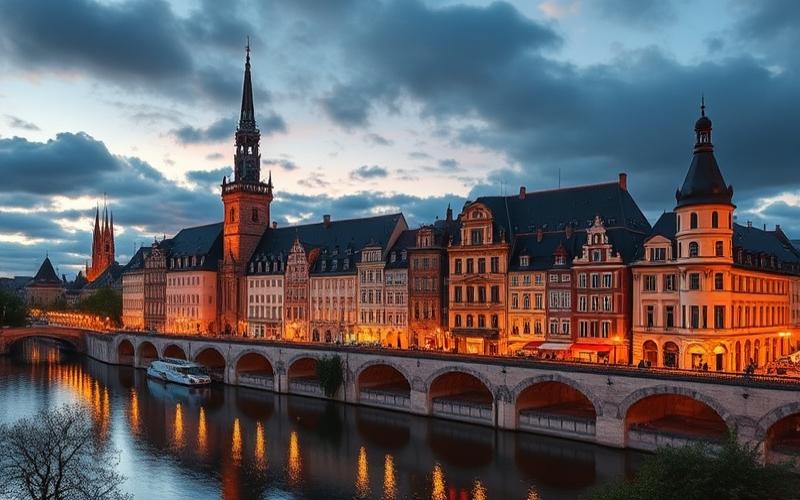
 Published on and written by Cyril Jarnias
Published on and written by Cyril Jarnias
Luxembourg at the Forefront of Green Real Estate
In response to pressing climate change challenges, Luxembourg stands out through its bold green real estate initiatives. At the core of these efforts are rigorous and innovative standards along with attractive subsidies planned for 2025, which not only encourage sustainable practices but also strengthen the national commitment to a more environmentally friendly future.
As demand for greener buildings continues to grow, this article explores how the Grand Duchy is working to transform its real estate landscape, decoding the key measures shaping this transition toward more sustainable and energy-efficient construction.
Good to Know:
Green real estate subsidies in Luxembourg for 2025 will cover up to 30% of investment costs for certified sustainable projects.
Eco-Construction Trends in Luxembourg
Current eco-construction practices in Luxembourg prioritize the use of eco-friendly materials such as local wood, hemp concrete, bio-based insulation, and bioclimatic components. The focus is on techniques that promote a low carbon footprint, responsible building lifecycle management, and maximizing energy efficiency. The NZEB (Nearly Zero Energy Building) standard has been mandatory for all new residential construction since 2017, ensuring very low energy consumption through high-performance insulation, double-flow ventilation, and optimized orientation.
Among innovations adopted by local companies:
- Widespread use of home automation to optimize energy management (smart heating, remote control).
- Systematic integration of heat pumps, photovoltaic panels, and other renewable energy sources.
- Growing use of recycled materials in construction sites.
- Digital tracking of building lifecycles to improve environmental performance.
Evolution of consumer preferences manifests through:
- Increased demand for passive or energy-positive housing.
- Growing importance placed on ecological impact from the design stage: choosing locations suited to local climate and maximizing use of renewable energy.
- Higher expectations for thermal comfort while drastically reducing energy bills.
International influences primarily come from:
| Country/Region | Main Influence |
|---|---|
| Germany | Passivhaus standards; advanced wood technologies |
| France | Bio-based techniques; HQE/BBC certifications |
| Belgium | Circular approaches; extensive use of recycled materials |
| EU | NZEB regulations / Green Deal |
The transition toward a greener sector presents several opportunities:
- Easier access to public financial assistance (eco-construction grants, tax credits).
- Rapid development of local expertise in sustainable engineering.
But also certain challenges:
- List of main obstacles:
- Continuous price increases for sustainable materials (wood, bio-based insulation) linked to recent crises.
- Need to accelerate without sacrificing quality given urgent housing needs.
- Ongoing adaptation to increasingly strict European regulations (complete ban on fossil fuels since 2023).
Influential regulations:
- NZEB standard mandatory since 2017
- Progressive then complete ban on fossil fuel heating since early 2023
- Low-carbon roadmap aligned with European Green Deal
Iconic Luxembourg examples:
| Project | Contribution |
|---|---|
| “Nei Schmelz” District Esch-sur-Alzette | Circular urban planning & positive energy |
| Court Architecture Passive House | Bioclimatic model with local materials |
| “NZEB” Buildings Kirchberg | Record GHG reduction & smart management |
These projects illustrate the strong commitment of the Luxembourg sector to green real estate through technological innovations and rigorous respect for environmental standards.
Good to Know:
Eco-construction in Luxembourg has significantly developed with the adoption of eco-friendly materials such as certified wood and natural insulation, promoting construction techniques that maximize energy efficiency. Local companies particularly innovate by integrating smart home technology and using renewable energy and recycled materials, reflecting evolving consumer preferences that now prioritize sustainability. Influenced by practices from other European countries, these trends are reinforced by regulations favoring high energy performance buildings. However, sector professionals face challenges related to high costs and skill adaptation. Iconic projects like the Casa Ferrero building illustrate this green transition, combining sustainable architecture with reduced environmental impact, thus contributing to the country’s innovative image in green real estate.
Available Subsidies for Renewable Energy in Luxembourg
Renewable Energy Subsidies in Luxembourg for 2025
| Target Audience | Eligible Project Type | Maximum Amount / Terms | Main Eligibility Criteria | Managing Organization |
|---|---|---|---|---|
| Individuals | Photovoltaic solar panels (≥3 kW) | Up to 50% of installation cost or flat rate depending on power and storage. Decreasing aid planned for future. Small installations 100 kW; respect agricultural use | Ministry of Economy & Environment |
Other Complementary Programs
- Municipal Assistance: Some municipalities offer additional grants.
- Energy Suppliers: Some operators provide their own financial support.
- Preferential Climate Loans and State Guarantees.
Main Types of Supported Projects
- Installation or expansion of residential or industrial photovoltaic panels.
- Installation/renovation of heat pumps.
- High-performance thermal insulation (walls/roofs/windows).
- Smart systems managing energy consumption.
General Eligibility Criteria
– Compliance with Luxembourg environmental and technical standards (high-performance EPC required for major renovations).
– Complete application to the one-stop shop Klima-Agency before work begins in most cases.
Summary List of Standard Administrative Procedures
- Get information via the official website or through the one-stop shop Klima-Agency.
- Verify technical eligibility with an approved professional.
- Prepare an application including detailed quote(s), proof of ownership/usage rights, any certifications related to targeted energy performance, and validated plans/projects if necessary.
- Submit the application BEFORE any actual start of work/selected installer (except specified exceptions).
- Wait for official approval then complete work within specified deadlines.
Regulatory Framework
All interventions must comply with national environmental standards, particularly regarding minimum energy efficiency required for major renovations as well as local urban planning requirements. New measures also facilitate certain administrative procedures: no prior authorization needed for installing photovoltaics on unprotected buildings or non-sensitive green areas; upcoming creation of a “right to solar” in co-ownership; accelerated legal procedure planned for certain projects.
For all updated information and official forms: contact Klima-Agency which now centralizes most individual and professional applications related to renewable energy in Luxembourg.
Good to Know:
In Luxembourg in 2025, individuals and businesses can benefit from renewable energy subsidies managed by the Ministry of Energy and Spatial Planning. These financial aids cover projects such as installation of photovoltaic solar panels, heat pumps, and energy storage systems. Individuals must comply with sustainable construction standards to be eligible, while businesses must demonstrate their projects’ compliance with the country’s environmental objectives. Subsidy amounts can reach up to 50% of installation costs, with specific caps depending on project type. To submit an application, candidates must complete an online form and provide supporting documents on the Luxembourg government website. These subsidies are part of national efforts to meet strict environmental standards, thereby promoting sustainable development and green real estate.
BREEAM Certification: How to Obtain This Label in Luxembourg
The BREEAM label (Building Research Establishment Environmental Assessment Method) is an international reference for environmental building certification. It assesses project performance according to sustainability criteria, promoting green real estate and integration of responsible practices throughout a building’s lifecycle. This certification is recognized for improving asset value, enhancing developer image, and meeting growing investor and user demands for sustainable development.
Steps to Obtain BREEAM Certification in Luxembourg:
- Contact an approved BREEAM assessor for Luxembourg.
- Register the project with the BREEAM organization.
- Submit required documents (plans, technical studies, proof of compliance with BREEAM criteria).
- Project assessment based on the following criteria:
- Management
- Health and Well-being
- Energy
- Transport
- Water
- Materials
- Waste
- Land Use and Ecology
- Pollution
- Quality control by BREEAM on the completed assessment.
- Obtain certification (intermediate during design phase, final after construction).
| Step | Description |
|---|---|
| BREEAM Assessor | Selection of a certified professional |
| Registration | Administrative process with BREEAM |
| Document Submission | Technical file and evidence to provide |
| Assessment | Multi-criteria analysis according to BREEAM framework |
| Quality Control | External verification of compliance |
| Certification | Official attestation, rating from Pass to Outstanding |
Support Organizations and Advice in Luxembourg:
- BREEAM International (BRE Global) supervises the process and issues certifications.
- Local and international consulting firms specialized in sustainable engineering assist project holders with document preparation and compliance (examples: engineering companies, environmental study offices, accredited BREEAM auditors).
Concrete Benefits of BREEAM Certification:
- Real Estate Valuation: enhanced attractiveness for investors, users, and tenants.
- Reduced Operating Costs through better energy efficiency and decreased water and resource consumption.
- Contribution to CSR Objectives (Corporate Social Responsibility) and brand image.
- Anticipation of Future European environmental regulations.
- Increased User Well-being through consideration of health, comfort, and indoor air quality.
Tax Incentives and Subsidies in Luxembourg (2025):
For 2025, BREEAM-certified buildings can benefit from certain sustainable construction aids, particularly subsidies for energy efficiency and water management.
Tax incentive programs are planned within the national policy supporting green buildings, subject to eligibility (partial property tax exemptions, investment grants, urban planning bonuses).
Examples of BREEAM-Certified Projects in Luxembourg:
- European Investment Bank (EIB) New Building: project assessed from design phase according to BREEAM, continuous adjustment of architectural and technical studies to meet requirements, obtained “Very Good” level.
- Adenauer Building (European Parliament): BREEAM “Excellent” certification in design phase, integration of innovative solutions like rainwater harvesting, geothermal and solar energy use.
These projects demonstrate strict compliance with BREEAM criteria, particularly regarding energy management, indoor environmental quality, and carbon footprint reduction.
Good to Know:
The BREEAM label, internationally recognized, assesses building sustainability and is crucial for green real estate projects in Luxembourg. To obtain this certification, several steps must be followed such as preparing and submitting documents demonstrating compliance with BREEAM criteria, which include energy performance, efficient resource use, and occupant well-being. Local or international groups, like Green Building Council Luxembourg, provide consulting services to simplify this process. Having this certification increases project value and highlights their commitment to sustainable development. In 2025, Luxembourg offers subsidies or tax benefits for certified buildings, aligning with policies promoting ecological standards. Notable examples of certified projects include certain office buildings that have integrated efficient energy management and use of eco-friendly materials, illustrating compliance with required standards.
Key Takeaways:
BREEAM certification in Luxembourg is obtained through a structured approach, supported by local and international experts, and offers concrete benefits in terms of real estate value, image, and environmental commitment, with local examples demonstrating feasibility and relevance of the approach.
Guides and Resources for Eco-Construction Projects in Luxembourg
Main Organizations and Institutes in Luxembourg for Eco-Construction:
- Institut de Formation Sectoriel du Bâtiment (IFSB)
Offers specialized training programs, including the CRCO2 program dedicated to ecological transition in construction.
Types of Resources: - Practical modules on integrating bio-based materials
- Workshops on applied lifecycle analysis and efficient deconstruction
- Technical manuals and methodological guides
- 100% subsidized training for sector employees (“Climate Competence” grant: €135 per day/per person trained)
- V. Figueira (technical manager)
- C. Gontier c.gontier@ifsb.lu
- lifelong-learning.lu (InfPC)
National platform listing over 76 eco-construction training courses led by about a dozen member organizations.
Types of Resources: - Detailed catalogs of certifying and non-certifying training
- Practical workshops (“Energypass”, “Green Roofs”)
- Energy and environmental labels explained in offered modules
- LIST – Luxembourg Institute of Science and Technology
Partner in the EcoTransFaire project, involved in cross-border research on eco-renovation and technical levers to energize the sector.
Contacts:
Useful Contact: info@infpc.lu / +352 46 96 12 1
Relevant Online Platforms:
- www.lifelong-learning.lu → Centralized search for training offers, downloadable PDF manuals, sector news.
- www.ifsb.lu → Thematic files on low-carbon construction; direct access to workshop catalogs.
Government Initiatives & Available Financial Support:
Summary List of Available Support for Green Real Estate:
| Program | Main Ecological Criteria | Amount/Benefit | Organization/Contact |
|---|---|---|---|
| Climate Competence Grant | Participation in labeled eco-construction training | Up to €135/day/person | IFSB |
| Renovation Subsidies | Bio-based insulation, CEC energy label | Variable depending on work | Myenergy / Energy Ministry |
| Passivhaus Assistance | New construction with Passivhaus label | Tax bonus + subsidy | KlimaAgency |
Ecological Criteria Required for 2025 Subsidies:
- Use of certified bio-based or recycled insulation
- Lifecycle Analysis calculation when submitting application
- Compliance with CSRD (Corporate Sustainability Reporting Directive)
- Obtaining energy passport with performance > class B
- Commitment to circular economy (recycling/selective deconstruction)
Useful Contacts for Technical or Administrative Assistance:
- IFSB – Environmental Compliance Service: c.gontier@ifsb.lu / +352 26 59 56
- lifelong-learning-lu – Continuing Education Guidance: info@infpc.lu / +352 46 96 12 1
- KlimaAgency – Energy Advice & Financial Assistance for Green Real Estate
Green real estate projects thus benefit from comprehensive support ranging from methodological guides to specific funding, subject to strict compliance with technical criteria set annually by national authorities.
Good to Know:
For an eco-construction project in Luxembourg, you can seek support from Luxinnovation and the Sustainable Housing Council, which offer detailed guides, specialized training, and workshops on energy efficiency and sustainable materials. Online, the myenergy.lu portal provides valuable resources and advice on sustainable techniques. 2025 subsidies require compliance with strict criteria, including use of low carbon footprint materials and achieving high energy efficiency standards. The Neistart Lëtzebuerg program offers encouraging financial support for green real estate projects. For more information or technical assistance, it’s recommended to contact the sustainable housing information center at the Ministry of Energy and Spatial Planning.
Disclaimer: The information provided on this website is for informational purposes only and does not constitute financial, legal, or professional advice. We encourage you to consult qualified experts before making any investment, real estate, or expatriation decisions. Although we strive to maintain up-to-date and accurate information, we do not guarantee the completeness, accuracy, or timeliness of the proposed content. As investment and expatriation involve risks, we disclaim any liability for potential losses or damages arising from the use of this site. Your use of this site confirms your acceptance of these terms and your understanding of the associated risks.


